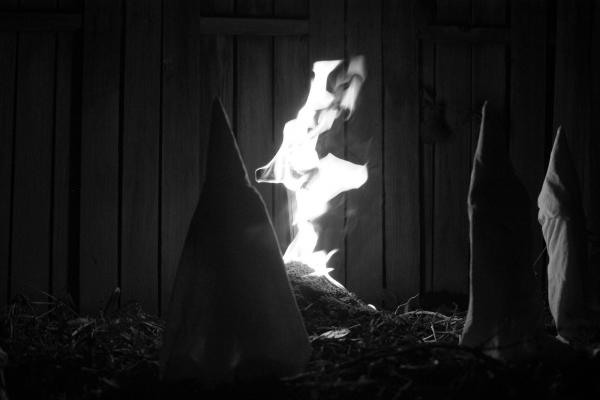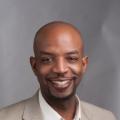Like many people in the nation, I was deeply disturbed when I stayed up late watching the election results on Nov. 8. This country elected Donald Trump to succeed the nation’s first African-American president — a deed that was in no way coincidental. President Obama’s election was an historic moment: the United States sent a black family to live in the house that slaves built as a residence for the highest political office in the land of their captivity. And with the election of Obama to that high office, the White House became home to free ancestors of the slaves who built it. Obama’s election felt like an earthquake of sorts. When the dust settled, it seemed that some old, terrible things had been demolished, and other things were moved around. From all appearances society had been recalibrated.
But this recent election was another earthquake. It disclosed, in an epic way, that those old and terrible things were not gone; most were just below the surface. White supremacy, with its supplementary phobias and isms, produces a chronic obsession in the United States with an idealized human being — a white man. He is perpetually ascendant. Communities shape and bend their values to adjust to his requisite ascendancy. He is the fetishized product of ideology that shapes how this nation has arranged itself and its communities since it’s founding. Many people thought that the election of the first black president was an undoing of that ideology that shapes our nation’s racist history. Clearly it was not. They took their country back.
The language and behavior at Trump’s rallies was pornographic display of that hideous, ideology. It was so wanton that it gave the impression that his supporters were a fringe group. Over the years we’ve grown accustomed to the presence of seemingly outlying racists among us; we see them on television shows and in movies, and occasionally we encounter them as trolls online. They are not the norm; they are the fringes of society. The profile of the overt racist is poor and uneducated, or bitter and old white people. But the recent election showed us something very different about them.
That’s not to say that everyone was caught off guard by evidence that racism was not in the past alone, or isolated to certain communities. President Obama was subjected to overt racism in Washington. In the face of racist politics, the black president represented a firewall of sorts, in opposition to white supremacy in those high places. By the very fact of his presence and authority in that space, racism in government had to go through him, as well.
If Hillary succeeded in her bid for the White House, she would continue the firewall. Although she is white, as a woman who embraced Obama’s legacy, she embodied a continuing transition away from chronic obsession with idealized white masculinity. But more than anything, she would have defeated Donald Trump, whose campaign was mobilized by the gross ideology of difference that legitimized everything from slavery and Jim Crow, to rape culture, colonization, and genocide. Defeating him would have helped affirm the dignity of the communities targeted by his campaign and his supporters.
But the majority of white people in the U.S. affirmed Trump over Hillary, revealing that the fringe is not a minority voice; they are legion, and they are everywhere. We encounter them anonymously every day, and we may even have to place our trust them, even though their ideal community would purge us as residents.
Even the Trump voter who intended a vote in opposition to Hillary rather than support for Trump shares the guilt of his rhetoric. To ignore it is to be apathetic toward the people who are targeted by it. There are no innocent bystanders when this rhetoric is deployed. The apathetic bystander is an enabling conduit.
Consequentially, the Christian support for Trump is most troubling. Exit polls indicate that the more often a white person attends church, the more likely they were to vote for Trump. Also, 81 percent of white evangelicals, and 60 percent of white Catholics, voted for Trump. Many of his supporters, saw him as anti-establishment, but white Christians also saw him as the moral choice. Family values Christians were vulnerable to this kind of ethical murkiness; they might interpret good Christian living as the pursuit of individual morality. This rendering of the gospel misreads the biblical language of justice.
Some biblical translators see the Old Testament words Tsedekah, and Mishpat, and the New Testament word Dikaiosune, and translate them as righteousness. Bible-reading Christians see those translations, and believe their Bible to be talking about individual morality — righteousness. Other translators rightfully translate those words as justice, which leads to a very different reading of the way of Jesus: justice and hospitality as the way of Jesus, (“I was hungry and you gave me something to eat, a stranger and you welcomed me …”) rather than self-righteousness, which the Bible condemns. It becomes much easier to be a single-issue voter, to collapse the total claims of discipleship into one issue, and ignore the rest, when the way of Jesus is about individual morality. But if the way of Jesus is the way of justice, our eternal salvation is connected to a life of pursuing justice and practicing hospitality.
Christians who make that connection have passed the test of integrity in the laboratory of history. When morality was bent to accommodate slavery — routing Christianity through white supremacy as the way of Jesus — pre-bellum justice-minded Christians were viewed as immoral and lawbreakers. In her day, Ida B. Wells-Barnett connected the way of Jesus to justice and moralizing white Christians viewed her as immoral. Her public stance against lynching was outrageous and indecent. Dietrich Bonhoeffer was branded immoral and a traitor. He argued for concrete obedience to the Sermon on the Mount as discipleship oriented towards peace, justice, and communion with God and neighbor, not about individual moral living. André Trocmé, leader of the French village, Le Chambon, argued for obedience to the Sermon on the Mount as a commitment to the way of Jesus — not individual morality, but justice. Every person in his village risked their lives to save more than 300 Jews during WWII. Martin Luther King Jr. was a disturber of the peace. He saw the Sermon on the Mount as relevant for social life, and the demands of justice as core to the way of Jesus. Fannie Lou Hamer, Jo Ann Robinson, Clarence Jordan, and many other Christians passed the test in the laboratory of history, in crisis times by seeing the way of Jesus as the way of justice, when most other Christians failed.
What will we do, now, in this post-election reality? Those of us who are triggered by the rhetoric and those who celebrate live in two different worlds, in this same national space. I hope that Christians will take serious assessment of the place of justice and hospitality in our faith. It may help to recognize that Jesus was not talking about unbelievers in his story about sheep and goats in Matthew 25. Both groups will respond to the Lord, “When did we ever see you … ?” His reply, and their well being, will be dictated by the life they lived, and whether it had anything to do with justice.
Got something to say about what you're reading? We value your feedback!

